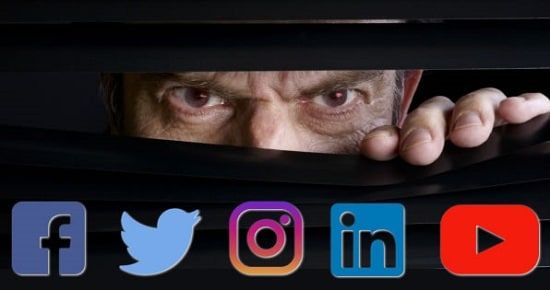
Advertising industry mistakes that undermine brand credibility – Actual
The mistakes made by the’advertising industry that undermine the credibility of brands
Advertising and branded messages are everywhere and it is almost impossible to find out what they are’Actual application must be out of reach of companies. Companies that talk to consumers all the time and try to convey their values, principles and product qualities at all times. But even if’they try to share their messages all the time, it doesn’t mean that consumers are happy to receive or accept them all the time.
Why the credibility of companies is at stake with advertising ?
In fact, in recent years, brands and companies have faced credibility and trust issues. Consumers are much less likely to believe what they see on a website’they are told that in the past. Businesses are hindered in part by the general loss of trust in institutions.
In part, their own practices are causing them to run out of steam.
In fact, it is very likely that the current behavior of brands will have a very negative impact on their perception and trust that they have in the market’they generate. As the president of the Advertising Association, Keith Weed, said’recently pointed out, the’The industry is committing a series of deadly sins that make it difficult to trust the company’it could have gained. N’Let’s not forget, he reminds us, that 69% of people do not trust advertising at all anymore, as the’showed a study of’Ipsos Connect: what are the practices that make the world go round?’water to the mouth of the sector ?
The quality of ads is getting worse and worse
As the’explains the researcher, the fact that consumers are increasingly annoyed by advertising means that they are not being exposed to it’they have less and less confidence. The key to understanding why ads increasingly bother them is the quality of the ads. Commercials are getting meaner or more boring.
L’The study uses consumers’ perception of TV advertising in the UK as an example to understand this data. In the past year, half of consumers said that’they found TV commercials boring. In 2006, only 15% of the population had a computer’said.
Brands create smoke on social networks
In’In other words, the pressure that brands put on what happens on social networks to make them as positive as possible for their interests has made it a smoky scenario. L’The fact that consumers are more and more bored with advertising means that consumers are not being exposed to false or unreal activity that is generated in social media to create money for the wrong person’illusion of success has become a burden. Fake followers or purchased likes are not only a problem when hiring new employees, they are also a problem when hiring new employees’influencers, but also in the’Overall appreciation of the conversation.
Personal data is increasingly being used as a tool for marketing purposes’concerns
Consumers are increasingly concerned about how their personal data is used and who has access to it. In parallel, but closely related to this, the’The study also highlights the risks of social networking’excessive personalization of advertising. Strategists love personalization because it’s the only way to get the message across’it is to tell each consumer what to do’he wants to hear.
However, things have gone beyond the pale. It is not’is acting out’offer what the’It’s expected of you, but it’s not expected of you’to be too heavy, to do things wrong or simply to be disruptive. Examples are numerous.
Of that advertising that chases you after you enter a page and makes you annoyed and no longer want to buy something or that’A company assumes that you are interested in the company’The list goes on and on, and it’s not just about age or gender, but also about the fact that you’re simply saturated (the Clear Blue case).
The advertising, c’is giving the’money to the wrong person
As a result of the YouTube scandal, when’advertising for legitimate brands has been found to be linked to extremist videos, ads have been closely monitored. Consumers are not’While consumers don’t like branded ads appearing on questionable sites or linked to objectionable content, programmatic advertising is making it increasingly difficult to control the use of ads’where they appear. All of this has had an impact on consumer trust in advertising.
Fake news was cut off.
Another of the big problems in the content has been a negative blow in what confidence affects. Fake news and its growth have caused advertising to lose 35% of its credibility.
There’s too much advertising
Ads and various brand messages are ultra-present in everyday life. It is believed that’at the’Currently, consumers receive an average of 10,000 brand messages per day. As data continues to grow, it has been’especially as the channels of communication with brands multiply.
So messages no longer seem relevant, but consumers feel bombarded and saturated by advertising and brands.
